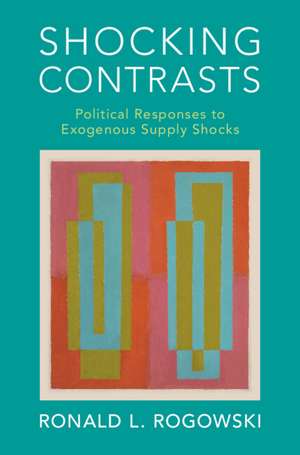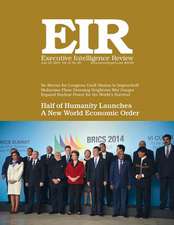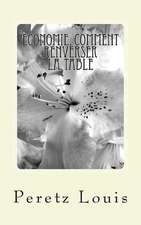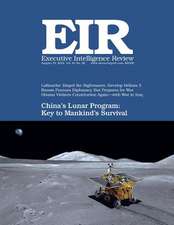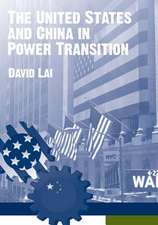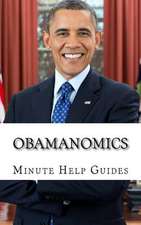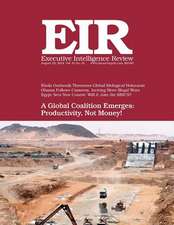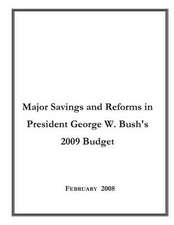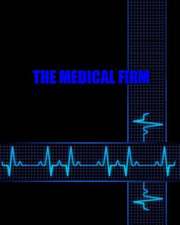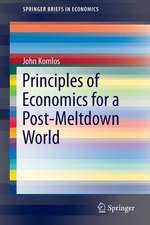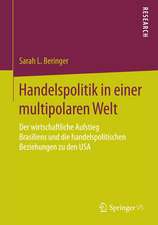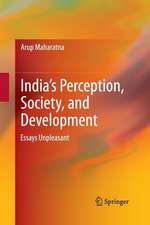Shocking Contrasts: Political Responses to Exogenous Supply Shocks: Political Economy of Institutions and Decisions
Autor Ronald L. Rogowskien Limba Engleză Hardback – 16 aug 2023
Din seria Political Economy of Institutions and Decisions
-
 Preț: 133.60 lei
Preț: 133.60 lei -
 Preț: 306.68 lei
Preț: 306.68 lei -
 Preț: 235.99 lei
Preț: 235.99 lei -
 Preț: 200.87 lei
Preț: 200.87 lei -
 Preț: 211.85 lei
Preț: 211.85 lei -
 Preț: 295.55 lei
Preț: 295.55 lei -
 Preț: 208.16 lei
Preț: 208.16 lei -
 Preț: 177.53 lei
Preț: 177.53 lei -
 Preț: 226.25 lei
Preț: 226.25 lei -
 Preț: 236.43 lei
Preț: 236.43 lei -
 Preț: 265.11 lei
Preț: 265.11 lei -
 Preț: 228.38 lei
Preț: 228.38 lei -
 Preț: 281.49 lei
Preț: 281.49 lei -
 Preț: 285.37 lei
Preț: 285.37 lei -
 Preț: 279.98 lei
Preț: 279.98 lei - 14%
 Preț: 773.75 lei
Preț: 773.75 lei -
 Preț: 233.38 lei
Preț: 233.38 lei -
 Preț: 247.41 lei
Preț: 247.41 lei -
 Preț: 203.12 lei
Preț: 203.12 lei -
 Preț: 230.33 lei
Preț: 230.33 lei -
 Preț: 286.69 lei
Preț: 286.69 lei - 14%
 Preț: 790.57 lei
Preț: 790.57 lei -
 Preț: 265.32 lei
Preț: 265.32 lei - 11%
 Preț: 554.15 lei
Preț: 554.15 lei -
 Preț: 287.07 lei
Preț: 287.07 lei - 11%
 Preț: 700.20 lei
Preț: 700.20 lei -
 Preț: 273.13 lei
Preț: 273.13 lei -
 Preț: 459.84 lei
Preț: 459.84 lei -
 Preț: 280.35 lei
Preț: 280.35 lei -
 Preț: 260.11 lei
Preț: 260.11 lei - 11%
 Preț: 640.30 lei
Preț: 640.30 lei -
 Preț: 286.89 lei
Preț: 286.89 lei -
 Preț: 247.80 lei
Preț: 247.80 lei - 11%
 Preț: 691.81 lei
Preț: 691.81 lei -
 Preț: 287.48 lei
Preț: 287.48 lei - 11%
 Preț: 641.80 lei
Preț: 641.80 lei - 11%
 Preț: 635.32 lei
Preț: 635.32 lei -
 Preț: 271.01 lei
Preț: 271.01 lei -
 Preț: 265.70 lei
Preț: 265.70 lei
Preț: 231.82 lei
Nou
Puncte Express: 348
Preț estimativ în valută:
44.37€ • 48.21$ • 37.30£
44.37€ • 48.21$ • 37.30£
Carte disponibilă
Livrare economică 31 martie-14 aprilie
Livrare express 14-20 martie pentru 30.90 lei
Preluare comenzi: 021 569.72.76
Specificații
ISBN-13: 9781316510704
ISBN-10: 1316510700
Pagini: 225
Dimensiuni: 158 x 236 x 18 mm
Greutate: 0.54 kg
Editura: Cambridge University Press
Colecția Cambridge University Press
Seria Political Economy of Institutions and Decisions
Locul publicării:New York, United States
ISBN-10: 1316510700
Pagini: 225
Dimensiuni: 158 x 236 x 18 mm
Greutate: 0.54 kg
Editura: Cambridge University Press
Colecția Cambridge University Press
Seria Political Economy of Institutions and Decisions
Locul publicării:New York, United States
Cuprins
Preface and acknowledgments; 1. How supply shocks arise and why political responses to them vary; 2. Who adjusts to a supply shock and who resists it: three determining factors; 3. Why a technological solution does, or does not, emerge; 4. Exogenous loss of labor: the black death in fourteenth century Europe; 5. Exogenous gain of labor: railroads, reproduction and revolution: the Russian population explosion between 1850 and 1914; 6. Exogenous loss of land: blockade, hunger and the Nazi pursuit of Lebensraum; 7. Exogenous increase of human capital: French Huguenots in German cities and principalities, 1685-1715; 8. When the endogenous becomes exogenous: the printing press as a multiplier of human capital; 9. Conclusion: the role of other factors, including institutions, ideas and human agency.
Notă biografică
Descriere
How do plagues, blockades, and world-changing innovations change social and political institutions in some, but not all, societies?
